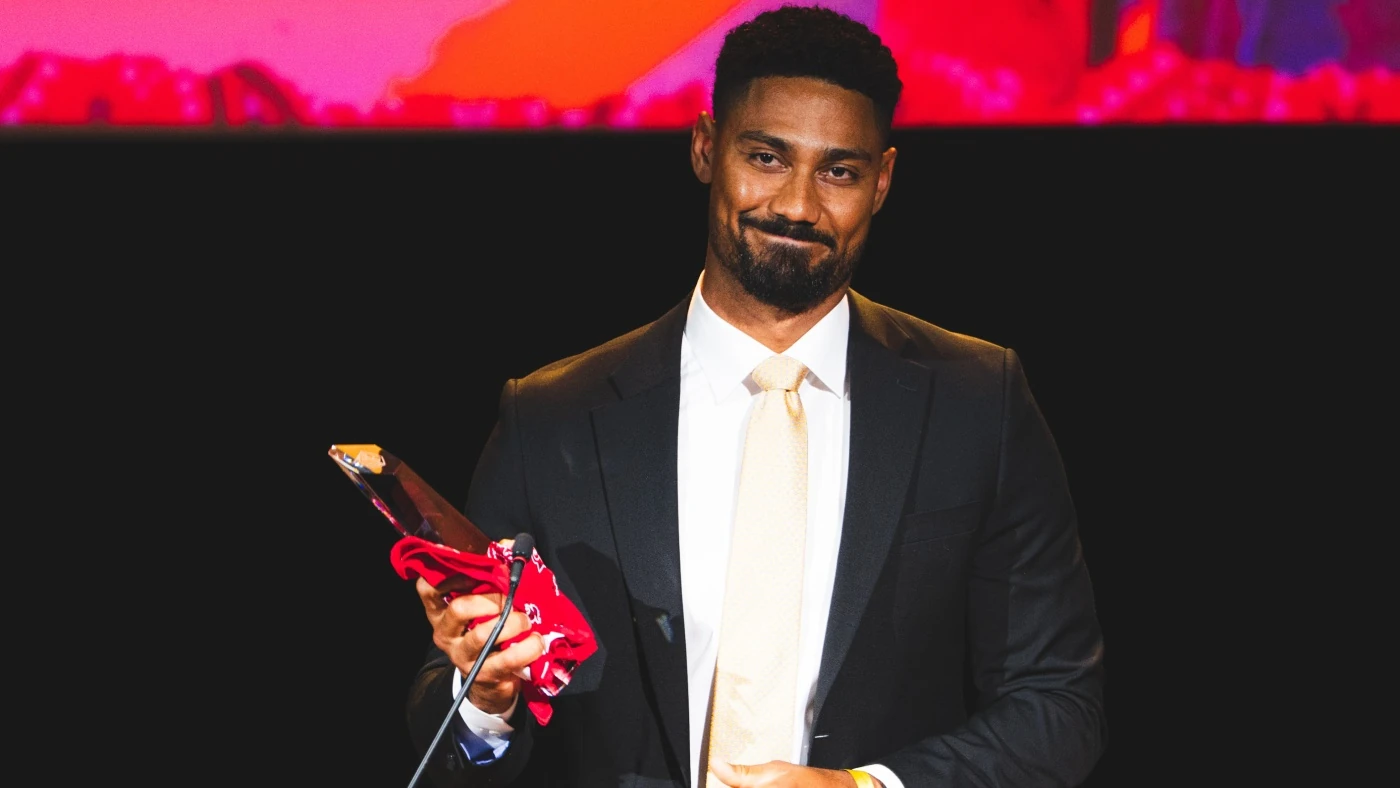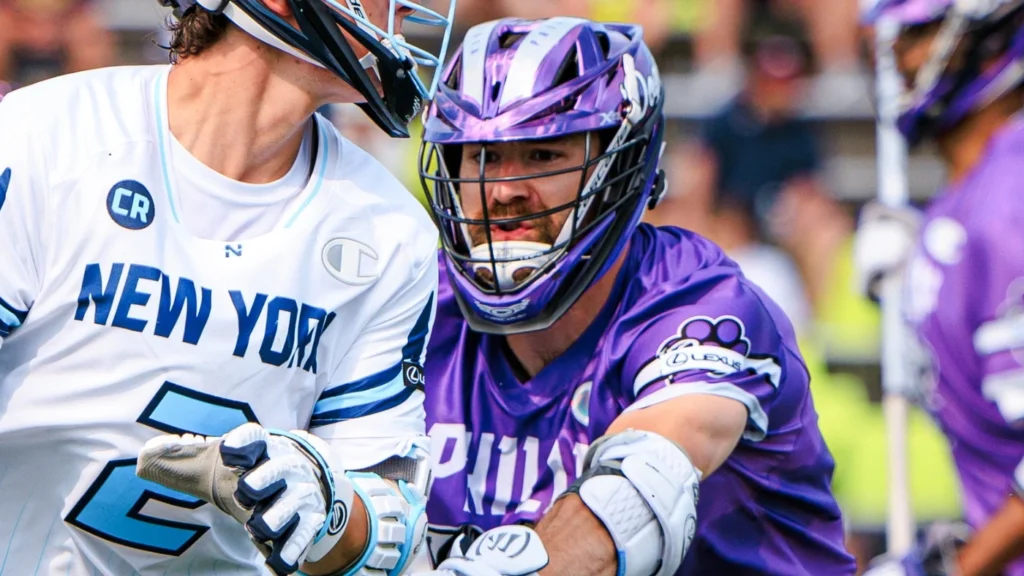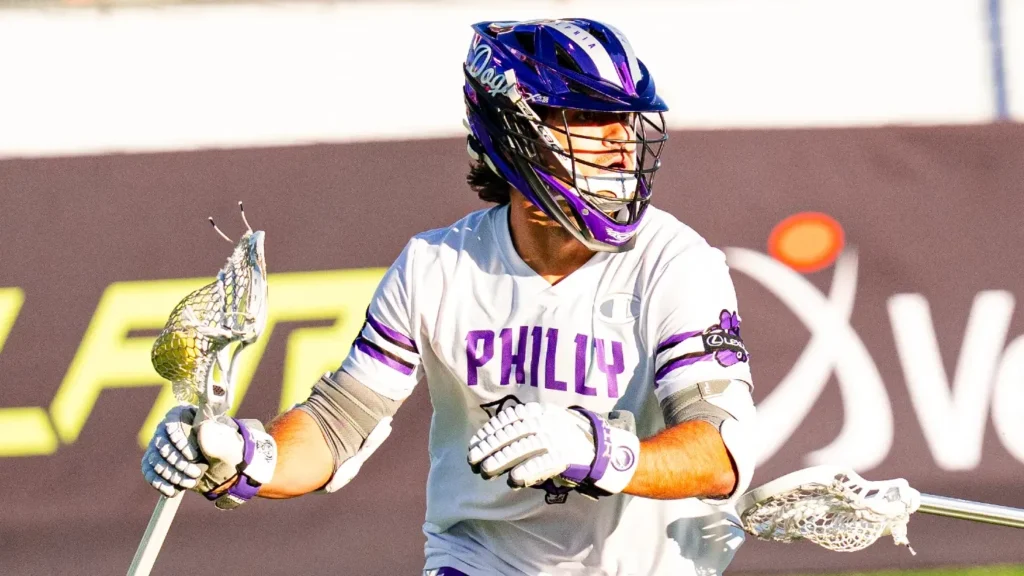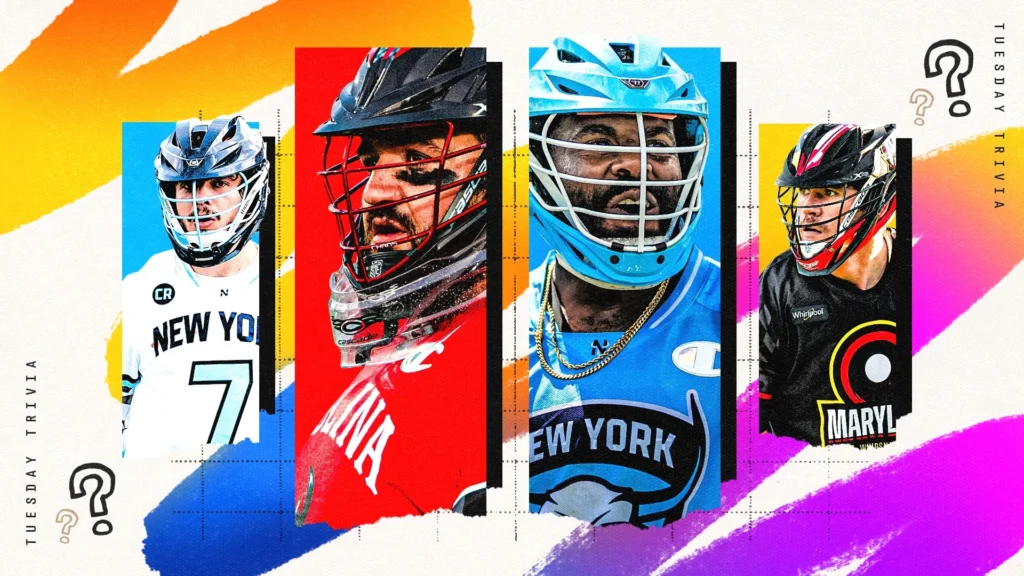At St. Mary’s Ryken, head coach John Sothoron – who led the Knights to 11 straight Maryland State Independent championships – expected more from his players than solely on-field excellence. He had his players complete mandatory community service, as well.
At the time, Romar Dennis wasn’t interested in spending his day raking leaves at a cemetery. Sothoron told him he needed to, so Dennis thought he could get one over on him. On the volunteer timesheet he needed to turn in, Dennis added an additional two hours to his total time.
Sothoron caught the deception, though, and Dennis was in a lot of trouble. He’s come a long way since then.
Last week, Dennis won his second consecutive Welles Crowther Humanitarian Award, given annually “to the player who makes a meaningful impact in his community.”
“It used to be mandatory, and I dreaded it,” the California Redwoods midfielder said. “Now that I’m older and mature enough to reflect and realize that people need help in a lot of places, I wish I could clone myself and be in five places at once, helping.”
Serving others was a value instilled in Dennis from a young age, even if it started out with him being voluntold to do so by his mother. She was very active in her church and would sign Dennis up for different volunteer activities; she would also have him help her friends from church carry their groceries from the supermarket, even though all he wanted to do was go home.
As he got older, Sothoron – who was named the National Interscholastic Lacrosse Association Man of the Year in 1997 – and his head coach at Loyola, Charley Toomey, acted as similar influences on him.
“[Dennis is] a great young man who embodied everything we stand for at Loyola,” Toomey said. “Passionate, accountable, character and toughness were all virtues he embodied. It has been awesome to watch him continue to grow and truly use the platform he has in the PLL to be a ‘man for others.’”
One memory with a lasting impact came when Dennis was a freshman at Loyola. Toomey is on the Harlem Lacrosse Baltimore Advisory Board, and he invited Cristo Rey High School to a practice. The kids were fully immersed, participating in challenges and flashing huge smiles.
“That was the first time I had seen some of the community service I had done directly impact and make a kid happy,” Dennis said. “It was something I wanted to really continue to be a part of.”
Once he got to the professional level, Dennis realized his time could have an even greater impact. In the PLL, he never actively sought out opportunities; he just kept getting asked if he would do things, and he never said no.
He didn’t think he was doing anything special; he assumed everyone in the league was doing the same thing. Even now, he doesn’t feel he’s more deserving of the Welles Crowther Humanitarian Award than the Kirst family, who put on a weekly free clinic for kids in New Jersey; Jake Richard, who helped put together a clinic for Harlem Lacrosse when they came to the Boston stop during the season; or Eric Law, who works full-time for Denver City Lax.
Dennis also thought of all the rec and public school coaches he had over the years before college that had full-time jobs and families but still volunteered, or made barely any money and were out on the fields, dragging goals out.
He just felt like saying yes was what he was supposed to do.
“I think it’s really, really hard to ask for help. No one wants to,” he said. “So when you finally do, you’re at a point where you really need it or someone thinks you really need it. To say no when someone is in the humble position to ask you for help feels not negotiable. If someone reaches out to you, who are we to say no to spend time with a kid when they’re fighting for their lives or they can’t afford to play lacrosse? We should be really lucky to go and do that.”
One of the people he said yes to was Anthony Kelly. Before Kelly became his coach with the Redwoods, the two met as part of the Wimmer Solutions team that played in tournaments in Hawaii. In addition to the games, the players on the team also brought gear and hosted an equipment drive, as well as put on a clinic for all the young kids on the island.
Kelly saw the kind of person Dennis was, and when he got back to Ohio with his teams at Resolute Lacrosse, and one of his players was going through a challenging time and needed some encouragement, he asked Dennis to speak with the player, knowing Dennis was someone the young athlete could look up to.
“Romar is one of those guys that’s always willing to say yes,” Kelly said. “He’s got a huge heart and cares about the lacrosse community as much as he cares about playing in it. He cares about the young players coming up behind it. He’s always a guy that sets a good example for how to carry yourself both on and off the field.”
Dennis serves on the Harlem Lacrosse Los Angeles Advisory Board and coaches with that chapter of the organization. Through the years, he’s conducted clinics in Costa Rica and has gone to Japan four times with the PLL and helped teach the game to young players there, as well. Away from the field, he also routinely visits patients at hospitals.
Kelly said it isn’t just young kids who can look up to Dennis; his teammates do the same.
“The guys consistently see him volunteering,” Kelly said. “That says a lot about a guy. It really sets the tone for the type of guys we want in our locker room and the type of guys we want our Redwoods team to be. When you have a guy like that who’s been around, the players see it, and it really sets the tone for our locker room.”
Reflecting on his life, Dennis realizes how fortunate he was. He had two loving parents. He played for some of the greatest coaches in the game at their respective levels. He received a full athletic scholarship to college. He plays the sport he loves professionally and has gotten to travel the world because of it.
Lacrosse has given him so much, he said, and he wants everyone to experience it. He said it makes him sad to think others don’t “have a fraction” of those things, so he does what he can to share.
“I look back when I really wanted a lot of things I have now,” he said. “It’s like you get those things, or you accomplish those things, it’s like, ‘Cool. Now what?’ It’s really fulfilling, and it feels like you’re sharing a little bit of that happiness that you’ve got.”
